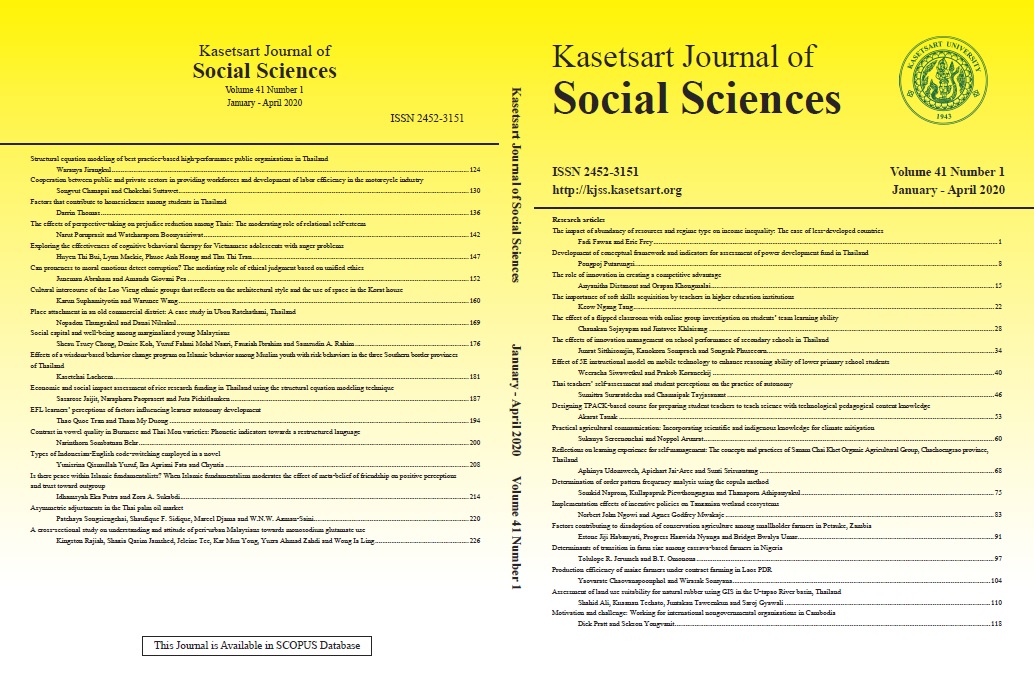A cross-sectional study on understanding and attitude of periurban Malaysians towards monosodium glutamate use
Abstract
The aim of this research was to explore the understanding of peri-urban Malaysians toward monosodium glutamate (MSG) use and their attitude toward its use and whether there were any correlations among the respondents' understanding, attitude, and their demographic profile. This was a cross-sectional study which involved 600 respondents. The respondents were conveniently approached and recruited from Gurun and Jitra, in Kedah region and Kampung Lemal, Kampung Cherang Hangus, Pasir Mas, and Rantau Panjang, in Kelantan region. Information about the understanding and attitude of periurban Malaysians toward MSG use were collected using an interview-administered structured questionnaire. The study incorporated an interviewer so that the uneducated were not left out and also to reduce the non-response rate. Slightly more than half of the respondents (53%) were aware that there are only a few unwanted effects attributed to the consumption of MSG. This showed a significant association with the age of respondents (p ¼ .014), with 41.5 percent (out of 53%) from the age group above 35 years. A significant
association was also noted between income and the bad effects caused by MSG consumption (p ¼ .016) with a high propensity among those earning below MYR 2,000. This study revealed a relatively high percentage of respondents who were using or had previously used MSG. Significant associations were found between respondent's income and their understanding of MSG, with the higher income respondents having a better understanding.
Downloads
Published
How to Cite
Issue
Section
License
Copyright (c) 2018 Kasetsart University

This work is licensed under a Creative Commons Attribution-NonCommercial-NoDerivatives 4.0 International License.
This is an open access article under the CC BY-NC-ND license http://creativecommons.org/licenses/by-nc-nd/4.0/










